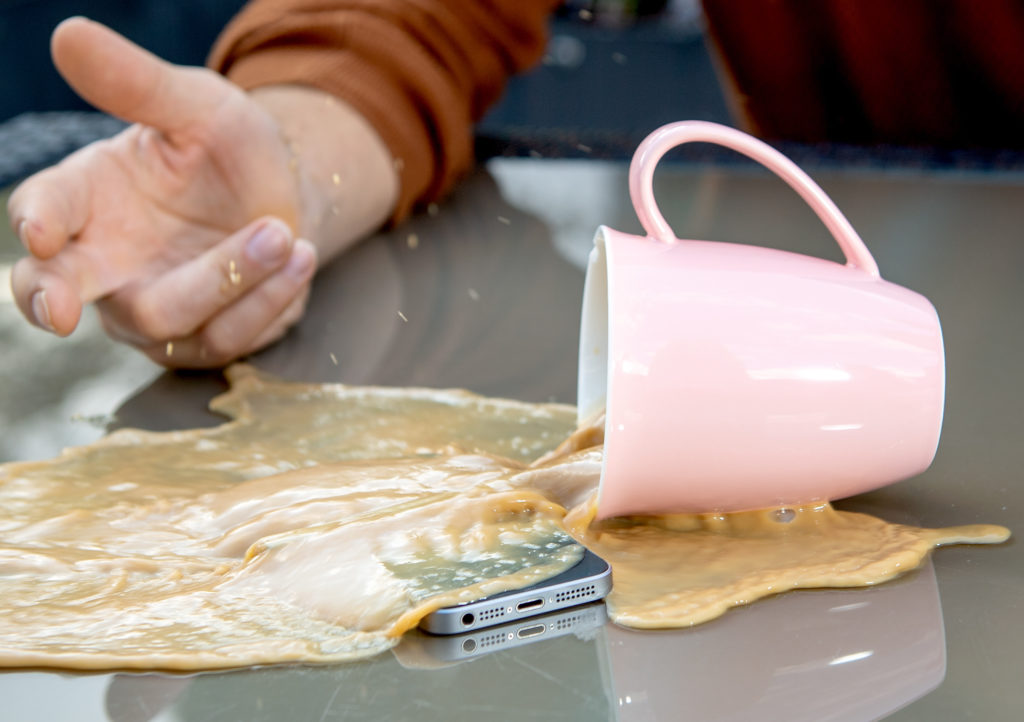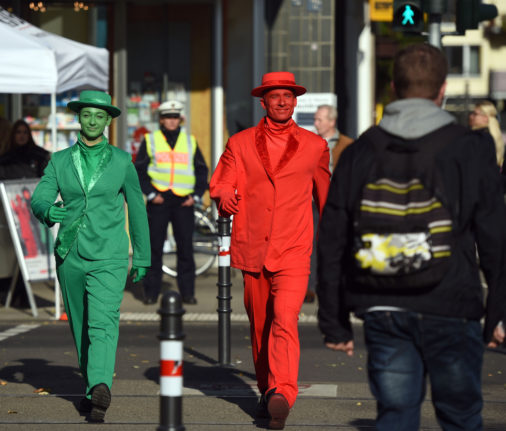1. Don’t be late
In the German-speaking world, punctuality is highly rated and lateness is considered rude.
To really fit in, follow the golden rule: be on time. Whether it’s for meetings, appointments or just casual dates with German friends if you want to fit in in Germany, leave home a bit earlier and plan to be on time.
But if you are going to be late – make sure to call or text the person to let them know in advance.
2. Understand how Germans tell the time
Crucial to being on time is understanding how to express time in the German language.
When taking your first steps in German, you probably already learned the slightly confusing way that Germans express the half hour: where the “half” refers to the hour that is approaching rather than the hour that has begun.
14:30, for example, is expressed as halb drei (half three) instead of halb zwei (half two) as in English.
But things can get even more complicated when it comes to speaking about quarter hours.
While many Germans will express the quarter hours as in English – with 14:15 as viertel nach zwei (quarter past two) and 14:45 as viertel vor drei (quarter to three) many Germans – particularly in the east of the country – refer to the approaching hour instead of the hour that has already begun.
So 14:15 would be viertel drei (quarter three) and 14:45 would be drei viertel drei (three quarters three).
If you can’t quite get your head around that, just be sure to double-check the time meant when making appointments.
3. Don’t cross the road at a red light
In many European countries, it’s acceptable to cross the road when the pedestrian light is red if the road is clear.
But in Germany, people wait until the pedestrian light has turned green – even if it means waiting on the side of the road without any cars going past.
This is partly because there are jaywalking is illegal in Germany and also because people just generally follow the rules.
If you do decide to cross the road on a red light and there are children around, you may well find yourself being reprimanded by other pedestrians for setting a bad example.
READ ALSO: Is it ever acceptable to cross the road at red light in Germany?
4. “Prost” properly

“Prost” is the German version of “cheers”.
If you have a drink with a group of friends or colleagues you should expect to toast with “prost”, to clink your glass with everyone else’s and make eye contact with each person.
Not only is it considered polite, but failure to lock eyes could result in bad luck. At least according to some locals.
READ ALSO: 10 weird taboos you should never break in Germany
5. Be ready at the check-out
Being at the check-out in a German supermarket can sometimes feel like an Olympic sport. Most shop assistants won’t assist you with your bags and are more likely to check through your items at lighting speed and expect you to keep up.
So, be ready for the challenge. While you’re waiting in the queue, put your groceries in a strategic order, i.e. heavy items like bottles and potatoes first and lighter items such as eggs near the end.
Also, have your bags out, open and ready to load.
6. Get a filing system
The digital revolution hasn’t quite conquered all areas of German life yet, and government authorities and health insurance companies still love to send out paperwork.
While many of the documents you get through the post in Germany can go straight in the bin, there are certain documents that you are obliged to keep hold of for a certain number of years.
If you’re self-employed, for example, you are obliged to keep your tax documents for ten years.
The best way to keep track of your paperwork is to get yourself a filing system. This can be as simple as a couple of ring binders but can make your life in Germany a lot easier.
READ ALSO: 13 things foreigners do that make Germans really uncomfortable
7. Join or start a Verein
Germans love to organise themselves, which is probably why there are around 600,000 Vereine (associations) in the country, covering all manner of hobbies and interests, including artistic associations, garden allotments, citizens’ initiatives, self-help groups, remembrance committees, carnival clubs – you name it, there’s probably a Verein for it.

An official Verein can be recognised by the two letters added to its name: e.V. which stands for eingetragener Verein (registered association).
Starting your own Verein can be very beneficial, as it enables access to public tax funds, is less bureaucracy than other legal entities and there is no personal liability of members.
8. Get letter notifications
A well-kept secret that can help your life in Germany is to get a free post notification service.
If you sign up for a GMX or web.de email account or get the Post and DHL App, you can get a free notification telling you which post has been sent to you, including a photo of the envelope.
The service, called Briefankündigung (letter notification), notifies users in advance of incoming letters, postcards and magazines by e-mail.
9. Get insurance
While not compulsory, private liability insurance is widely seen as essential protection against the risk of harming another person or their material things.

Under German Law, there is no ceiling on the level of damages an individual could have awarded against them for an act they committed, even innocently, or for the misdeeds of their pets.
Almost nine in ten Germans have Haftpflichtversicherung (personal liability insurance) and if you want to fit in, its probably best to get it too.
10. Always carry cash
Germans love cash and in many bars and restaurants throughout the country, you won’t be able to pay with a card.
Even though card payments and digital banking are gaining in popularity in Germany, there are many places that will still only accept cash. Or the staff will grudgingly dust off the card reader so someone can pay by card.
So, to avoid feeling like a tourist that is inconveniencing someone, always carry cash.




 Please whitelist us to continue reading.
Please whitelist us to continue reading.
Is there a typo in below sentence? viertel drei is 14:45, is it not? please correct me if am wrong.!
So 14:15 would be viertel drei (quarter three) and 14:45 would be drei viertel drei (three quarters three).